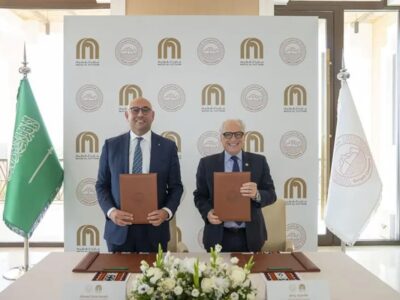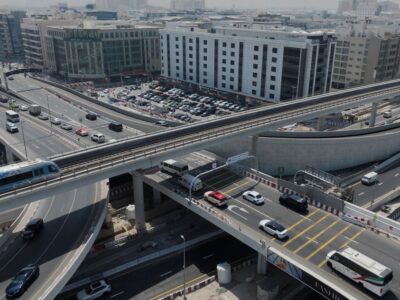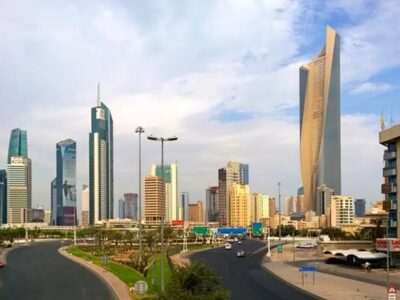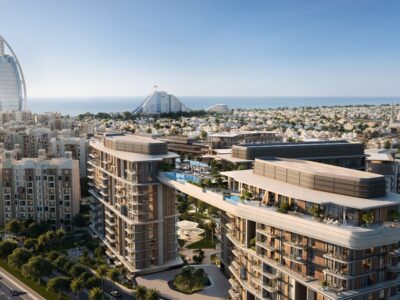McDonald’s has always [offered] healthy food,” says Rafic Fakih, managing director and partner at McDonald’s UAE, which operates 158 stores in the Gulf country.
Seventy-four-year-old Fakih, a regular at McDonald’s, is convinced the American fast food giant offers customers “the same food you eat at home”.
“It is bread, chicken, meat, potato and salad. What do you eat at home? Bread? McDonald’s bread is better quality. The meat is better quality, because it’s very well conserved, the chicken, everything. And it’s audited 100 times,” says the French-Lebanese, declaring he eats at a McDonald’s joint at least three or four times a week.
But the family restaurant, where a large fries and Big Tasty burger will give you more than 1,700 calories – just 300 calories short of an average woman’s recommended daily intake, and 800 shy of a man’s – has faced continuous cynicism from health regulators and some consumers, who claim the brand’s products are high in fat and cholesterol. Least forgettable of all controversies was the popular 2004 documentary Super Size Me, which saw independent filmmaker Morgan Spurlock eat at McDonald’s restaurants three times a day for a month, resulting in him gaining more than 11kg, increasing his cholesterol to 230mg/dL (milligrams per decilitre of blood) (compared to the recommended maximum 200mg/dL) and experiencing fat accumulation in his liver.
Fakih’s response is blasé.
“If you create a controversy for [an unknown] restaurant, no one will be interested. But if you write about McDonald’s, everyone wants to know. You speak about a big brand, it will be noticed. Before joining McDonald’s [UAE], I trained in McDonald’s Singapore for one year. And for one year, I ate only McDonald’s food,” he says. And, no, he did not gain Spurlock’s alleged 11kg, Fakih adds.
He says customers need to take some responsibility for their own discipline when choosing food.
“You can control the calories yourself. Take orange juice or water and salad instead of fries,” he says.
But, according to him, few customers are going to McDonald’s for a salad. The reality is, the chain’s reputation for burgers and fatty fast food has a lot to overcome if it intends to entice UAE residents watching their calories.
“They’re not buying more salads. We put fruit, they’re not buying fruit. I think it’s because people don’t eat out every day. And when they do, they like to opt for food that might have a little more calories or sugar,” Fakih says.
“At the end, we have to offer what people want to eat. Perhaps at home, sometimes, you want to eat fruit. But if we offer you fruit here, [you’ll say] we’re coming here for the burger. Even for children, we’re selling water or juice instead of soft drinks. And instead of fries, we offer fruits — but it doesn’t work.”
But rather than pull the healthier options from the menu, Fakih says McDonald’s UAE, which is owned by Emirates Fast Food, is striving to improve its full offering. Last year it reduced the fat content in its classic mayonnaise, halving the calorie count, and began cooking its fried food using a blend of sunflower and canola oil that has 80 percent less saturated fat than the previous oil used.
“We are using better technology to make our product healthier, but retaining the same taste,” Fakih says.

McDonald’s operates more than 500 restaurants in the GCC, including 158 in the UAE.
“The technology worldwide has improved. When technology improved in processing, we used it to give the same taste but with better nutritional value. Now, there is a possibility from the technological point of view to use good oil with an affordable price. At the factory where we process the food, the technology is so advanced now that you can do such drastic solutions.”
McDonald’s Worldwide has also introduced sustainability measures, sourcing fish only from fisheries with sustainable practices. If McDonald’s knows a species of fish is diminishing in numbers, they will not buy it, according to Fakih.
The fast food chain, which rakes in billions of dollars in revenue, also launched a worldwide initiative in 2011 to turn its cooking oil into biodiesel that is then used by trucks.
“[McDonald’s cooking oil] goes to a factory in Jebel Ali where it is reproduced to become diesel, but from a vegetable source, not from petrol, which makes it sustainable. So far, we’ve covered up to 7 million kilometres since 2011 with our oil. The factory tried to supply another oil, but couldn’t find oil that is as good in quality as ours,” he says.
In another bid to better its reputation when it comes to health regulators and customers, the fast food chain created an online website three years ago that allows users to ask any questions they may have regarding McDonald’s products.
“It’s the customer’s right to know. We called it, Your Right to Know. We received 40,000 visits on the website. The most popular questions were regarding calories, where we source our beef from and if it is halal,” Fakih says.
The brand started providing customers with the nutritional value of McDonald’s products more than a decade ago, when it placed nutritional information, including the number of calories and levels of fat and sodium, on tray mats and food packaging.
“If you’re eating something, you have to know what it is you’re eating. [McDonald’s nutritional information] is not something that is unknown information,” he says.
It might be thanks to the firm’s improved transparency to its customers that it has suffered little in terms of growth where others have downsized or closed down altogether.
“All retailers have been in a position of flat growth in the last one or two years. [But] we haven’t been affected much when it comes to our sales growth. We are flat and a little positive [in some stores],” Fakih says, declining to provide specific figures.
With seven new stores already opened this year and another eight due before December 31, as well as 15 more scheduled for next year, McDonald’s UAE will perhaps record growth more than a “little positive”. The company says its annual growth is about 8 percent.
The average McDonald’s restaurant in the UAE currently serves about 500,000 customers a year. Across the country, 44 million customers were served in the first six months of the year. Yet it is not only in the UAE that the brand continuous to prevail.
“I know a lot of people, especially local people, who travel. When they travel, they look for McDonald’s, because they know what to expect. There is a general acceptance that McDonald’s’ quality is better than everyone else,” he says.
And that is exactly the image self-proclaimed McDonald’s devotee Fakih plans to maintain. As far as he is concerned, people are still lovin’ it.








